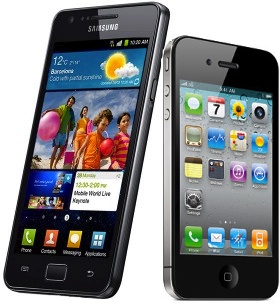While nine jurors in California attempt to turn days worth of allegations and testimony into a binding legal verdict, the Apple/Samsung patent fiasco finally came to a head in Samsung’s native South Korea. According to the Wall Street Journal, both companies took a licking when it came to a verdict passed down by a South Korean court earlier today.
Here’s how the sordid situation breaks down.
Apple: The company was found to have infringed on two of Samsung’s technology patents (CNN reports that they pertain to Samsung’s implementation of Wi-Fi), and have been order to pay out a total of ₩40,000,000 (about $35,200).
Samsung: The hometown hero didn’t get off scot-free, as the company was found to have violated one of Apple’s design patents, specifically one dealing with the bounce-back animation seen when a user tries to scroll past the edge of a webpage. The price tag for that transgression? ₩25,000,000, or about $22,000.
Those figures seem awfully paltry considering what these companies were found doing (Tim Cook could probably find that kind of money between his couch cushions), but they have to do more than just pay up. In addition to monetary damages, both companies are barred from selling certain devices in their respective portfolios. Though hot new devices like the iPhone 4S and the Galaxy S III have been spared from the sales injunction, the list is still a considerable one — in all, the court banned the sales of the iPhone 4, iPad 2, Galaxy Nexus, Galaxy S, and Galaxy S II devices.
All things considered, neither company is walking away from this case much worse off financially than when they entered, though arguably Apple got the short end of the stick here. Samsung can no longer sell two older phones (the S and S II), along with a phone that Samsung’s own lawyers said didn’t sell very well in yet another ongoing Apple v. Samsung trial. Since Apple’s tack had been to only release one new smartphone and tablet per year, sustained consumer interest in those older devices could mean Apple will take a hit in sales. Then again, with some new hardware right around the corner, this is probably ideal time (if such a thing exists) for a sales injunction on old device.
